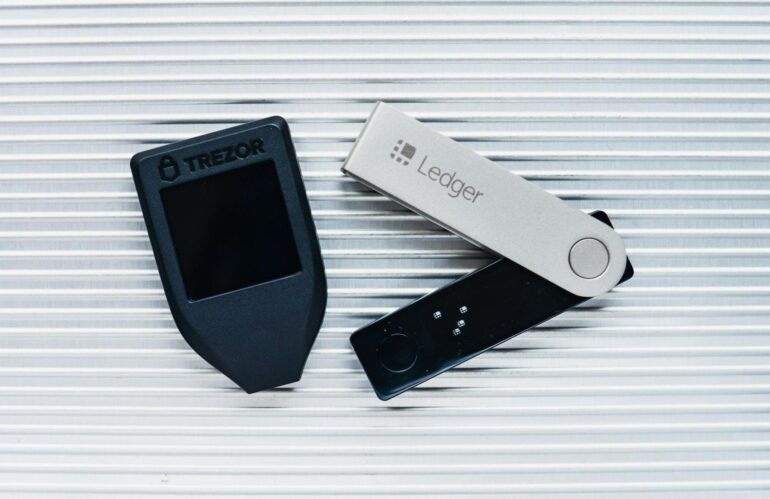Online casinos have come a long way from their early days, making gambling more accessible and convenient for players across the globe. But let’s face it: as thrilling as these platforms are, they’re not immune to skepticism. Questions like, “Are the games rigged?” or “How can I know the results are fair?” pop up more often than not. Here’s where cryptography—a fundamental pillar of modern security—steps in to save the day. It’s not just about keeping things secure; it’s about ensuring trust and fairness. Let’s dive into how cryptography works its magic in online casinos.
Why Cryptography Matters in Online Gambling
At its core, cryptography is about protecting information and ensuring it stays between the intended parties. For online casinos, this means:
- Randomizing Game Outcomes: Using cryptographic algorithms to guarantee unpredictability.
- Securing Player Data: Encrypting personal and financial information.
- Making Games Transparent: Leveraging cryptographic proofs to let players verify fairness.
Keeping Things Random and Fair
If you’ve ever wondered how online slot machines or roulette wheels keep things unpredictable, the answer lies in cryptographic Random Number Generators (RNGs). These RNGs are not your everyday coin flips—they’re backed by highly complex algorithms designed to produce outcomes that are virtually impossible to predict or tamper with.
Here’s a quick example: a cryptographic RNG might take input from unpredictable sources like the exact millisecond you clicked “spin” or random environmental data. This ensures every outcome is unique, fair, and certified by independent auditors. It’s like rolling a dice with no way to know—or control—what number will come up next.
Interestingly, some online casinos use quantum RNGs, which are even more advanced. These systems rely on quantum physics—specifically, the behavior of particles at the subatomic level—to generate true randomness. It’s a cutting-edge approach that adds an extra layer of unpredictability, making the games even more secure.
Locking Down Sensitive Data
Of course, casinos deal with a ton of sensitive information, from usernames to credit card details. Imagine if that data fell into the wrong hands—yikes! Cryptography plays a huge role in preventing this nightmare scenario. By encrypting data through protocols like SSL (Secure Sockets Layer) or TLS (Transport Layer Security), casinos make sure that hackers are left scratching their heads instead of stealing your info.
For instance, when you deposit money or withdraw winnings, your financial details are scrambled into an unreadable format before being sent to the casino’s servers. Only authorized systems can decode this information. It’s not just about security—it’s about earning your trust as a player.
This level of encryption is particularly crucial for platforms like an ETH online casino, where players transact using cryptocurrency. Since crypto transactions are irreversible, robust security measures are non-negotiable to protect funds and personal data.
Verifying Fairness: The “Provably Fair” System
Here’s a cool concept that’s shaking up online gambling: the “provably fair” system. It’s like having a cheat sheet to confirm the casino isn’t pulling any tricks. But how does it work?
- Server Seed: Before the game begins, the casino generates a cryptographic hash of a secret seed. This hash is shared with the player upfront.
- Player Seed: You, the player, get to add your own seed into the mix, making the final result a joint effort.
- Outcome Verification: After the game, you can use the seeds and hash to check that the result was genuinely random and not manipulated.
This setup creates a win-win situation: casinos can prove they’re playing fair, and players have peace of mind knowing the system isn’t rigged.
And you know what’s even cooler? Some casinos take this concept a step further by integrating staking mechanisms. Players can stake cryptocurrency, locking it up temporarily to support the system’s operations, and earn rewards in return. It’s a neat way of blending trust-building with the potential for passive income.
Blockchain Brilliance: Beyond the Basics

Speaking of trust, have you ever heard of blockchain technology? If not, think of it as a digital ledger where every transaction and game result is recorded permanently and transparently. Many forward-thinking online casinos are hopping on the blockchain bandwagon, and it’s not hard to see why.
- Transparency: Players can verify every bet and payout on the blockchain, leaving no room for shady practices.
- Automation: With smart contracts, payouts can be processed instantly without any human involvement. You win, and the system automatically sends your prize—no delays, no disputes.
One lesser-known but intriguing application of blockchain in casinos is the concept of “decentralized randomness.” Using blockchain, casinos can create public randomness beacons—shared sources of random numbers generated by multiple contributors on the blockchain. This method eliminates reliance on a single RNG system, adding even more transparency to the process.
Imagine a jackpot being paid out seconds after you win. That’s the kind of seamless experience blockchain enables.
Why It All Matters to You
So, what’s in it for players like you? A lot, actually. Cryptography doesn’t just make online casinos safer; it changes the entire experience. Here are a few highlights:
- Peace of Mind: Knowing the games are truly random lets you focus on having fun instead of worrying about fairness.
- Stronger Privacy Protections: Your personal and financial data stays out of reach from hackers.
- Extra Incentives: Features like staking add a layer of engagement, letting you earn rewards while enjoying your favorite games.
Challenges? Sure, There Are a Few
Okay, let’s not sugarcoat things. Cryptography isn’t perfect. For one, understanding how these systems work can feel overwhelming—who has time to decode all that technical jargon? Plus, running cryptographic processes can be resource-intensive, which might lead to slower performance in some cases.
And, of course, everything hinges on proper implementation. If a casino cuts corners or misconfigures its systems, even the best cryptography won’t save the day. That’s why it’s crucial to stick with reputable platforms.
What’s Next for Crypto-Fueled Casinos?
Looking ahead, the role of cryptography in online casinos is only going to grow. Quantum cryptography—yes, it’s as futuristic as it sounds—could bring even higher levels of randomness and security. And as blockchain tech becomes more efficient, we might see lower transaction costs and even faster payouts.
Casinos are also likely to keep experimenting with staking, integrating it into more games and systems. It’s a smart move, combining fairness, transparency, and a bit of financial incentive for players.
Moreover, the rise of decentralized autonomous organizations (DAOs) could shake up how casinos are managed. Imagine a casino governed entirely by its players, with decisions about payouts, games, and operations voted on via blockchain. It’s a wild concept, but one that could redefine trust in the industry.
Final Thoughts
To sum it all up, cryptography isn’t just a behind-the-scenes player in online casinos—it’s the backbone of fairness and security. From ensuring random outcomes to encrypting data and enabling provably fair systems, these technologies are reshaping the gambling experience. And with innovations like blockchain, quantum randomness, and staking on the rise, the future of online gambling looks brighter—and fairer—than ever.
So next time you spin the wheel or roll the dice online, take a moment to appreciate the incredible tech making it all possible. After all, it’s not just about luck—it’s about trust.









